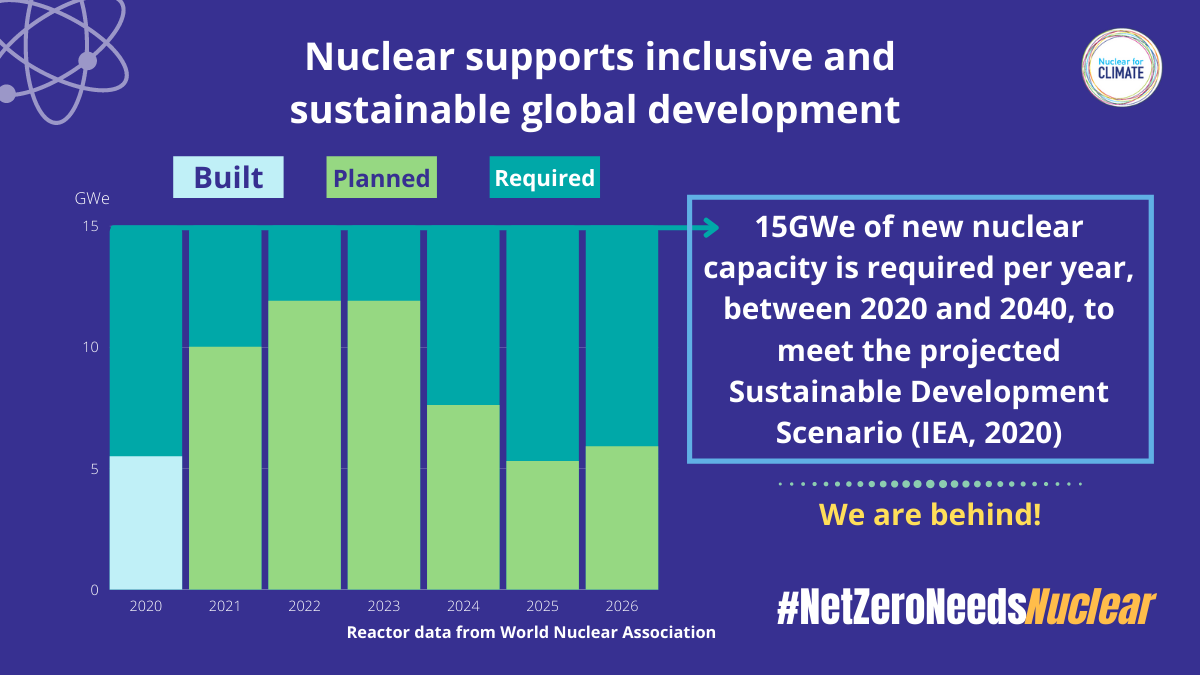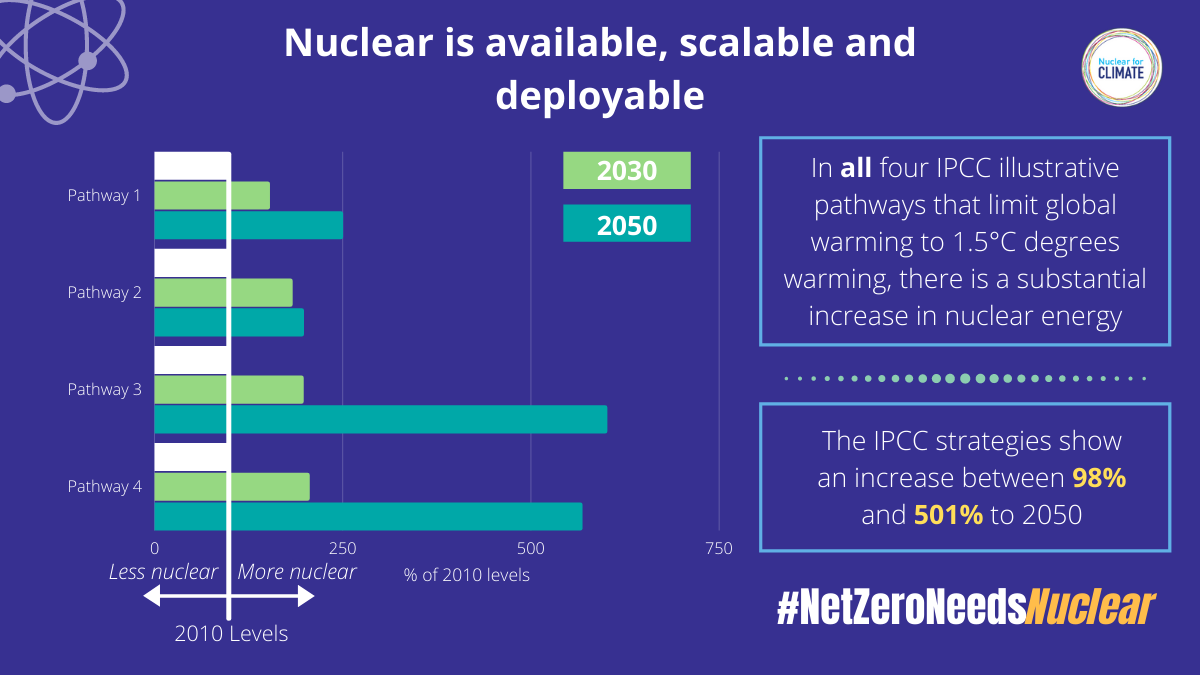
World leading nuclear scientists and organisations call on Boris Johnson, Alok Sharma, Patricia Espinosa and world leaders to acknowledge nuclear’s crucial position alongside renewables
New call to ‘follow the science’ and recognise that nuclear energy output must at least double by 2050
- Nuclear energy output will need to increase by 40% to 2030 and at least double by 2050 to meet global Net Zero targets, as found in the recent Net Zero by 2050 Global Roadmap by the International Energy Agency (IEA).
- UK and World completely off-track for developing new nuclear power as required under IEA Sustainable Development Scenario.
- A substantial increase in nuclear energy is needed in all four illustrative pathways that limit global warming to 1.5°C, as identified in a summary for policymakers of the Intergovernmental Panel on Climate Change (IPCC) Special Report.
- The four illustrative IPCC pathways show an increase of nuclear output of between 98% and 501% from 2010 to 2050.
- Nuclear for Climate and the Nuclear Institute Young Generation Network have a vision of a clean, sustainable, and low-carbon future for all. Our mission is to accelerate the ability of the world to achieve Net Zero by 2050, by driving collaboration between nuclear and renewable technology.
2nd June, London – Over 100 nuclear societies around the globe, representing over 80,000 young professionals, engineers, scientists, nuclear experts, environmentalists and concerned citizens, are calling on Prime Minister Boris Johnson, COP President Alok Sharma and UNFCCC Secretariat Patricia Espinosa to ‘follow the science’ and recognise that nuclear energy output around the world must at least double by 2050 to set us on the path towards achieving Net Zero.
The 26th UN Climate Change Conference of the Parties (COP26) being held in Glasgow from 1 – 12 November 2021 represents a critical opportunity for world nations to come together and take action collectively, changing the way we think about climate and setting us clearly on the path towards Net Zero.
The 2021 Nuclear for Climate Position paper outlines the scientific justification behind why Net Zero needs nuclear and calls on all those involved at COP26 to take a science-led and technology neutral approach to energy policy and financing. To mark the COP Bureau meeting that is taking place over the next three weeks, today more than 100 nuclear societies around the world have declared their support for the paper.
Key policymakers at COP26 such as COP26 President, Alok Sharma and UNFCCC Secretariat Patricia Espinosa amongst many others, have been contacted to take action and ensure nuclear is equally represented and supported at COP26 alongside renewables.
Geraldine Anne Thomas OBE, Chair in Molecular Pathology at the Faculty of Medicine, Department of Surgery & Cancer, Imperial College London, said:
“It’s time we used scientific facts rather than urban myths to decide our future energy policy. Do you really want to throw nuclear power out of the mix to help us reach Net Zero, when the scientific evidence shows it to be one of the best ways to generate energy.”
Fiona Rayment OBE, Chief Science and Technology Officer at National Nuclear Laboratory, Nuclear Institute Board of Trustees, said:
“Nuclear is a clean, reliable and sustainable energy source which in my view will play a pivotal role in achieving Net Zero.”
Hannah Paterson, Chair of the Nuclear Institute Young Generation Network, said:
“Young people are very aware of the climate crisis they are set to inherit. They realise that a toolbox of solutions of both nuclear energy and renewables working together is essential, and needed quickly, to turn our future dilemma around. We want to ensure that the benefits of nuclear energy are heard at COP26, so that countries can make informed decisions about technology approaches to reaching Net Zero.”
Prof. Emilio Minguez, President of the European Nuclear Society, said:
“It is a very significant development that this initiative has now been supported by so many professional nuclear societies around the world, because they together represent more than 80,000 scientists and engineers in the nuclear field.”
Andrea Bacharata, Women in Nuclear Global Young Generation Lead, said:
“As the Young Generation group inside WiN Global we unite young people and actively contribute to the climate change and gender balance debates, knowledge and experience exchange between members and chapters, creation of partnerships, development and learning opportunities. We are committed to further promote the interest in nuclear engineering, science, and other nuclear related professions because we believe that nuclear is a key solution in fight against climate change.”

